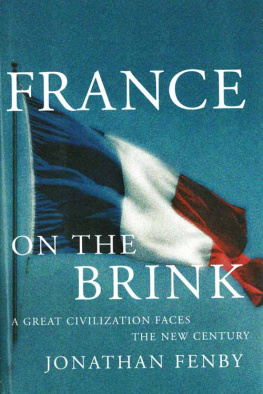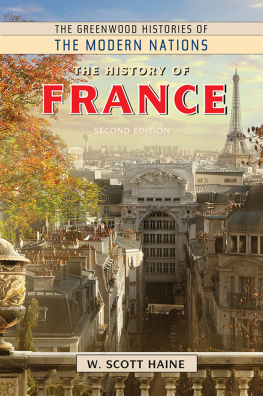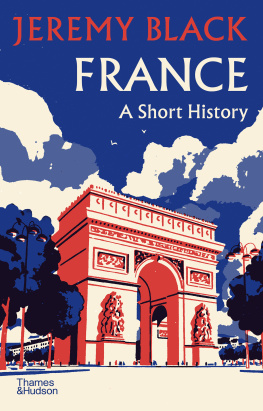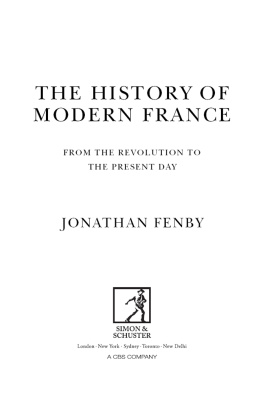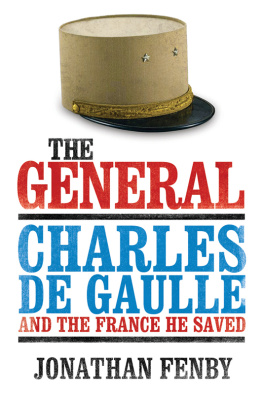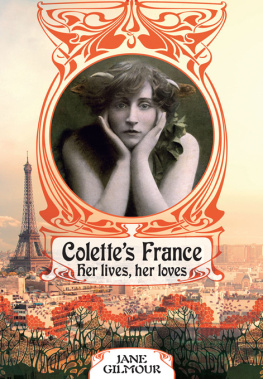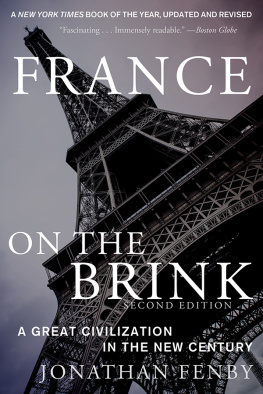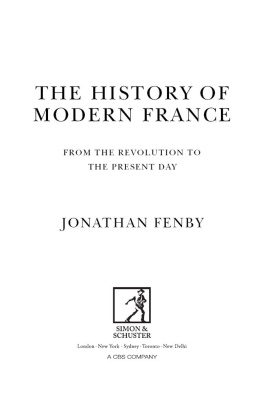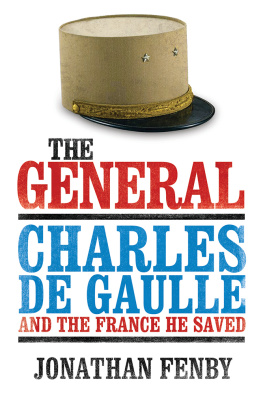All Rights Reserved. No part of this book may be reproduced in any manner without the express written consent of the publisher, except in the case of brief excerpts in critical reviews or articles. All inquiries should be addressed to Arcade Publishing, 307 West 36th Street, 11th Floor, New York, NY 10018.
Arcade Publishing books may be purchased in bulk at special discounts for sales promotion, corporate gifts, fund-raising, or educational purposes. Special editions can also be created to specifications. For details, contact the Special Sales Department, Arcade Publishing, 307 West 36th Street, 11th Floor, New York, NY 10018 or .
Arcade Publishing is a registered trademark of Skyhorse Publishing, Inc., a Delaware corporation.
Material from Chapter 13, A French Life, first appeared in different form in the Guardian Weekend magazine in 1995.
Visit our website at www.arcadepub.com.
Library of Congress Cataloging-in-Publication Data is available on file.
C ONTENTS
1
S OMETHING S PECIAL
2
B EHIND THE M ASK
3
V ANISHING M ADELEINES
4
C OUNTRY L IVING
5
M ODERN T IMES
6
B USINESS M ATTERS
7
A NOTHER F RANCE
8
S PECTRE AT THE F EAST
9
F OG OVER C HANNEL
10
D IVIDED W E S TAND
11
T HREE M EN AND A C OUNTRY
12
F RIENDS OF F RANQOIS
13
A F RENCH L IFE
14
T HE J AWS OF V ICTORY
15
O N THE B RINK
P REFACE
T he first time I went to France, I didnt like it much. My godmother had invited me to join her on holiday in Britanny to look after her children. I have two memories of the trip: daringly calling out Ah, les flics! at the police on the seafront, and trying to learn to sail on a boat with a grizzled Frenchman who kept yelling about le foc the mizzen sail, not a Breton approximation of a four-letter swear-word.
Forty years later, I was sitting in my office by the harbour in Hong Kong, having edited the South China Morning Post through the territorys return to China. It had been a breathless summer, with no time to think of anything except work. One Wednesday in August, I was seized by a single thought. My wife was in France, taking the waters at an obscure spa in the wilds of the Cvennes. In three days time, she and three of our closest friends would drive to a favourite restaurant and hotel in a medieval village by the Aveyron river. My diary was embarrassingly empty. So I booked a ticket for that night, flew to Paris, changed airports and boarded a little plane to the town of Rodez. Once there I hired a car, drove twenty miles, and was sitting in the garden by the river when they drove over the humpbacked bridge on Saturday afternoon.
France gets you that way. Its lure is the reason for this book. I had wanted to write an account of the state of France for some time; what got me started was the virulence and scale of the protests that were set off by President Chiracs decision to resume nuclear testing in the summer of 1995. Why, I wondered, did France arouse such strong emotions? What is it that is so unusual about this nation and its people? And then, looking at the morosity which spread across the country from the mid-1980s, how does one reconcile the superior sheen which France displays to the world with the realities of double-digit unemployment, a rampant extremist party of the far right and a people who reject the elite that has ruled them for decades?
Without a healthy France, there is no Europe. That is why the state of the land between the Atlantic and the Rhine, the Mediterranean and the Channel matters so much, and why, for all the pleasures and stimulation it offers, France needs to get a grip on itself.
For a foreigner to try to grapple with such matters may seem arrogant. But I hope that three decades spent either living in France or watching it closely from abroad have enabled me to take the pulse of the nation, though I know that many friends living in Paris, the Berry or the Auvergne would disagree with my concerns about their country. My starting-point is certainly not that of a Francophobe; rather more that of a lover who entertains some fundamental worries about the object of his affection.
That affection comes from personal experience, encounters and observation as well as from my work as a journalist in France for Reuters, The Economist, The Times, the Guardian, the Independent, the Observer and other publications in Britain and the United States. I could never have undertaken this book, let alone finished it, without the help of my wife, who has given me roots-by-marriage in France and whose assistance has been as invaluable as it has been rigorous. Hundreds of people have contributed to my knowledge of France and given me material for this book. I owe a special debt to my colleagues in the French press and broadcasting; in particular to LExpress, Le Monde, Liberation, Le Figaro, Le Nouvel Observateur, Le Point and RTL. I have indicated their specific contributions at various points in the text, but, beyond that, they have given me a far broader insight into France over the years as friends and colleagues.
Louis and Lya Wartski and their children have been an invaluable well on which to draw since the mid-1960s. Roger Galron was a particularly moving witness of one day in 1942. The late Andr Passeron was my first and best guide to French politics, while Louis Marcerou opened windows on to France that I could never have found elsewhere. Paul Webster was an essential companion at historic moments in the 1990s as well as unearthing valuable material on the saga of Francois Mitterrand, which he generously made available.
I owe a special debt to the inhabitants of Mourjou and Calvinet in the Cantal, and in particular to our generous and ever-dependable host in the chestnut country, Peter Graham. Among the Anglo-New Zealand tribe to be found in those parts, Keith Walker, Brian Oatley, Peter and Win Campbell have provided information and food for thought over the years in the Place de FEglise. Ginette Vincendeau has been both a valuable source of material and a stimulating verbal sparring-partner. Bernard Edinger has always been there when facts needed to be checked or leads followed up, while Simon Caulkin, Jack Altman and David Lawday have been friendly sources of ideas through more years than any of us would like to acknowledge.
I would also like to thank the following, for their often unwitting contribution over the years: Jacques Attali; Raymond Barre; Jean-Philippe Beja; Pierre Brgovoy; Luc and Annie Besnier; Jean-Louis Bianco; the Baron Bonnefous; Denis and Genevieve Brulet; Claude Cheysson; Jacques Chirac; Mary Dejevsky; Roland Dumas; Albert Duroy; the Estienne family and others who stayed on in the village of Saint-Andr-de-Rosans; Nicole and Michle Fagegaltier, and their father; Philippe and Claire Ferras; Anne Freyer; Marie-France Garaud; Valry Giscard dEstaing; Jacques and Annie Hudes; Denis Jeambar; Serge July; Pascal Lamy; Jean-Marie Le Pen; Jean-Yves and Michle Libeskind; John Litchfield; Gerald Long; Serge Marti; Dominique Mosi; Christine Ockrent; Micheline Oerlemans; Andr Poitevin; Louis-Bernard Puech; Martine Schultz; Dominique Strauss-Kahn; Margie Sudre; the Vincendeau family and John Vinocur.

